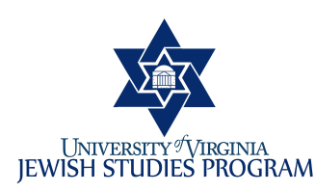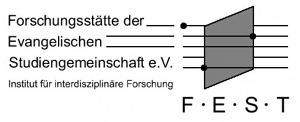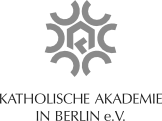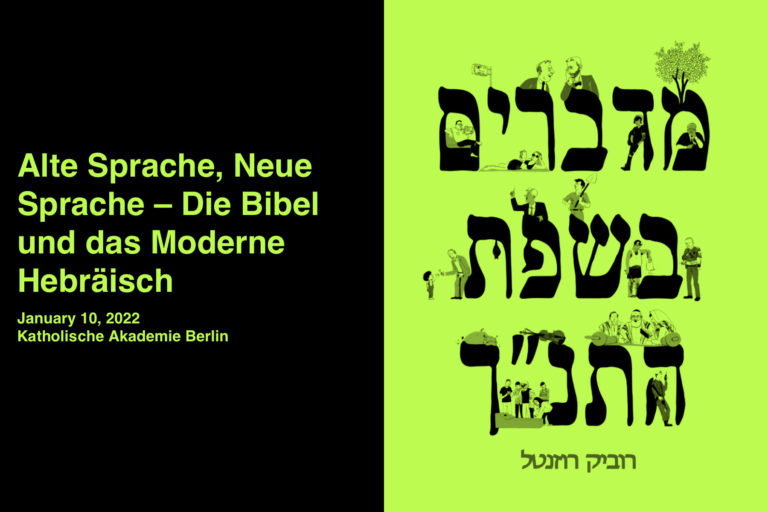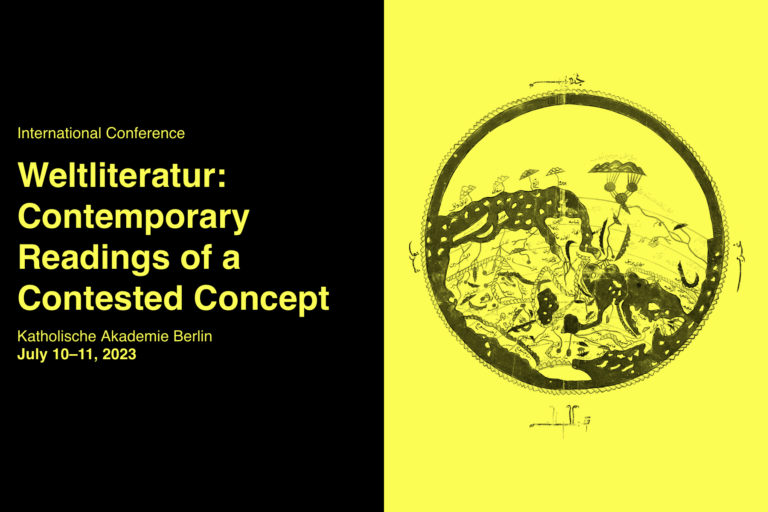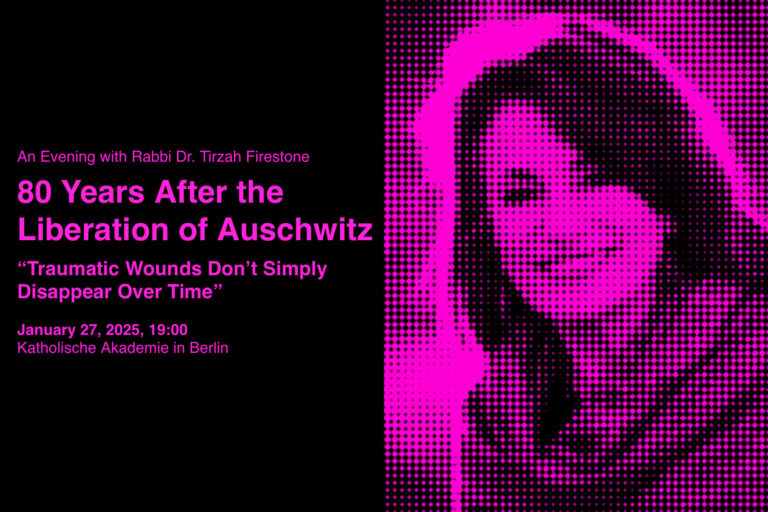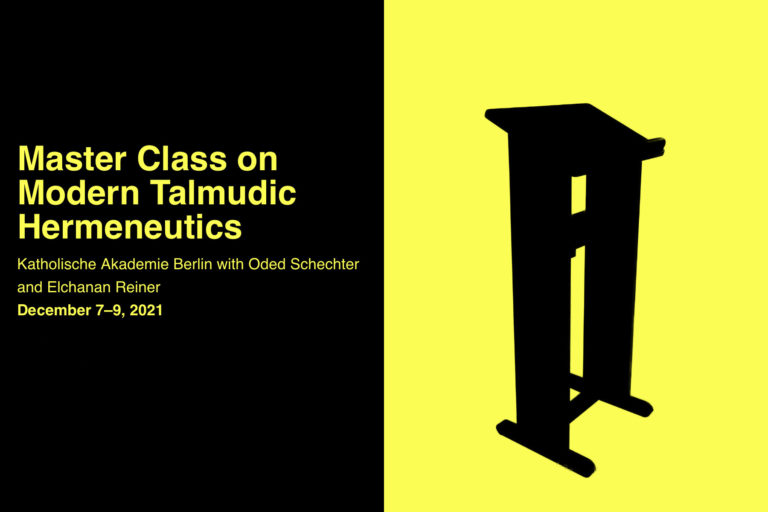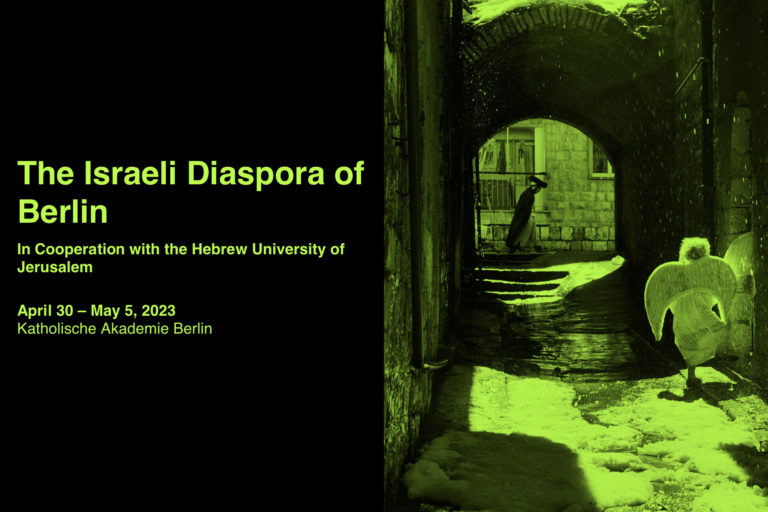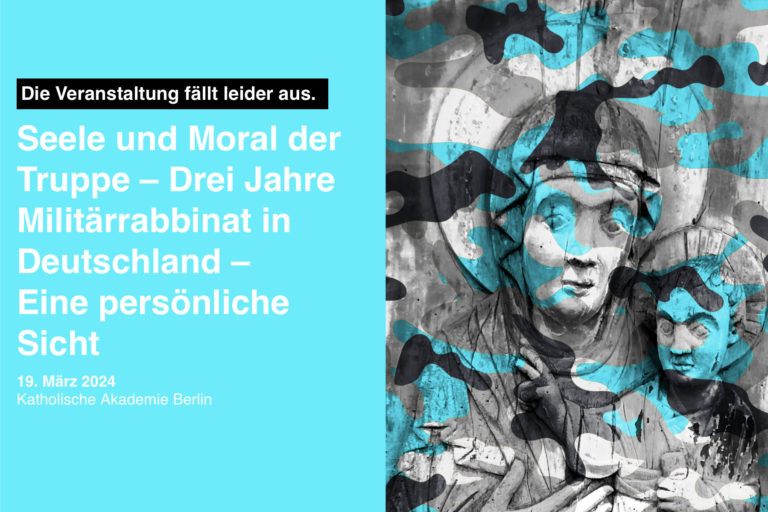Transatlantic Workshop Series “Religion and the Cultures of Democracy
Figures of Authority
People – Texts – Traditions
A cooperative project between the University of Virginia – Forum on Democracy,
the Catholic Academy of Berlin and the FEST Heidelberg
May 15–20, 2022
IISG Photograph: Ben van Meerendonk Derivative work: Jahobr, CC BY-SA 2.0, via Wikimedia Commons
Media on Youtube
Gerd Koenen: Autorität zwischen Macht und Religion – Ein Blick auf Russland
Figures of Authority
People – Texts – Traditions
Transatlantic Workshop Series “Religion and the Cultures of Democracy
Democratic societies are currently facing a situation that has been described as a “crisis of representation” or even as “post-democracy.” The self-image of Western societies characterized by the idea of democratic participation of their citizens in the political shaping of the community is being put to the test by a growing disenchantment with politics. Political disenchantment manifests itself not only in political abstention from tried and tested procedures of co-determination, but also in a questionable interaction between a loss of willingness to engage in discursive understanding of controversial issues on the one hand, and an emotion-driven polarization of political opinions, on the other. The cohesive power of the public sphere as a place of mutual recognition in the exchange of perspectives, expectations, and convictions based on a consciousness of civic commonality seems to be diminishing. Responding to this loss of cohesion the project “Religion and the Culture of Democracy” seeks to analyze the role of religious communities in the culture of democratic societies within and beyond the so-called West.
The project “Religion and the Culture of Democracy” is based on the hypothesis that the “post-democratic” developments are essentially due to a condensing atmosphere of distrust, which increasingly permeates the civic interaction of citizens in at least four dimensions: a) distrust between scientific elites or science-based economic functionaries and the population, b) distrust between ethno-cultural groupings, c) distrust between social classes, and d) distrust between information elites or networks and information users or recipients.
The loss of cohesion in the democratic public sphere challenges the preconditions of trust in governance and representation in general. Therefore, we need to re-evaluate the concept of authority, which Max Weber defined as the ability to achieve voluntary allegiance – that is to speak as the source of successful and legitimate rule. In political and public debates, however, the question of authority has often been ignored or treated with suspicion, as a relic of times long past. Socially, but also religiously and ecclesiastically, a crisis of authority is encountered above all in the present. At the same time, however, a new and frequently disconcerting desire for authority has experienced a remarkable renaissance in public debates and in political life.
Recovering the concept of authority as a key issue for understanding the political-cultural-religious situation of the present is therefore overdue. Moreover, the situation described may seem less paradoxical if we realize that the normalization and routinization of potentially crisis-ridden sequences of action belongs to the political function of authority. Thus, where authority exists it is rarely thematized as such, but embodied in action. Where authority is thematized, on the other hand, it does not seem to exist, for it lacks authority’s embodiments. The perception of a lack of authority, therefore, correlates with crises of action, in which normal patterns and stable routines of action orientation are no longer available. Religious communities are by no means exempt from this crisis-like cultural-political process, but rather form a mirror and laboratory of social developments as a whole. Precisely for this reason, however, it is worthwhile to address the role of religious communities in and for a democratic culture as an exchange of experiences among learning communities.
The Berlin Frühlingsschule will be organized around the following areas of inquiry:
1. Historical and Religious Ramifications: On the Concept of Authority
The distinction between authority and power has been an integral component to Westerns political thought. It suggests that something other than mere force is needed to establish order and cohesion. Models for authority go back to biblical times and ancient Rome. Addressing the revived desire for authority and stable values in an age without ultimate justification requires, therefore, historical and conceptual clarifications. Max Weber’s analysis of the function of authority, his distinction of three types of action corresponding to three strategies of securing authority (charismatic, traditional, rational) offer a solid point of departure. Exploring the specifically religious heritage of the concept of authority invites a re-examination of the emblematic biblical examples and strategies of authority.
2. Liberalism’s Threshold: Authority and the Authoritarian
In reaction to the leadership cults of the interwar period authority has often been equated with the authoritarian and denounced as “escape from freedom.” The difficulty that Western cultures had in giving meaning to authority is closely linked to a devaluation of obedience. Instead of demanding obedience, people are encouraged to cultivate relationships of trust, covenant or, as Spinoza put it, “voluntary obedience.” But unlike claims to authority, relations of trust are fundamentally subjective and rarely founded upon a shared narrative or on claims to permanence, universality, and duty. The reluctance to embrace powerful narratives of identity, the disregard for intrinsic values of liberal democratic societies, and the fear of cultural relativism in the face of renewed theo-political challenges have led to a global revival of new right-wing, nativist, and identitarian movements. This shift exposes the common dilemma of authority—that authority seems to appear only at the moment of its loss. Against this horizon, questions arise how we can respond to current anti-liberal, as well as liberal, forces of polarization and to new dynamics indicating a shift from left to right-wing political ideologies? What do we learn from intra-religious and inter-religious dynamics of de-legitimizing the authority of sacred texts, leaders, and institutions? Are there lessons offered for the cultural struggles in democratic societies?
3. Power and Anti-Authoritarianism: The Legacy of an Unfinished Project
Anti-authoritarianism was the buzzword of the 1960s, radically calling into question all traditional bastions of authority, such as church, school, family, and state. What is the legacy of those halcyon days? Which impacts had the powerful counter-cultural movement of the 1960s on the shape of organised religions around the globe? Was it the beginning of a social decline in values, a necessary reform of society and its institutions or the unwilling launch for a neoconservative revival? Most astonishing seems the revival of theo-political constellations that inspired new hermeneutics of tradition like the interpretation of rabbinic culture as antiauthoritarian or the new attention to the varieties and conflicts of spheres of freedom as limits of liberalism. Finally, a comparative perspective on the legacy of the 1960s and the anti-authoritarian mobilization in Eastern Europe or the religious roots of the Civil Rights Movement in the United States forged through rites of friendship and solidarity, as Danielle Allen and Nina Witoszek have argued, serve as examples for authorities born out of the spirit of anti-authoritarianism.
4. Alternative Authorities: A Global Perspective
Focusing on non-Western concepts of authority allows us to challenge and deepen familiar Western modes of thought. Important religious centers in Africa, Asia, and other parts of the world define cultural identities and traditions with their own structures of authority and organizations of community. How can these models challenge, expand, or transform Western traditions of authority? Which notions of individuality and self-realization do we encounter and how are they mediated with social realities like community, authority, and tradition? Finally, what role do questions of race and gender play as reflections of imaginaries and metaphors of authority?
5. The Charisma of Tradition: On Religious Sources of Authority
How do religious conflicts of “tradition and modernity” impact contemporary political disputes? What makes religion especially important in the contemporary crisis of trust and authority? If the crisis of trust and cohesion corresponds to a post-secular age, then the return of—and to—religion appears not only as a political and socio-economic, but also as a cultural phenomenon. Accordingly, processes of sacralization as modes of generating charisma need to be investigated by their social, political, and cultural impacts. While the dynamics of secularization confront us with the de-traditionalization and individualization of action, charismatic behaviour or the evidentialization of authority through the charismatization of persons, groups, organizations and institutions take on new significance in times of religious revival and renewed traditionalism. The capacity for charismatic commentary makes religious communities and churches important social factors.
The vision of the Frühlingsschule is to build bridges in two directions:
a) The project views itself as an exchange of experiences and ideas from European and American perspectives on the current role of authority and its challenges for religion and politics.
b) Another focus is on establishing an intellectual exchange between Jewish and Christian traditions and positions, triangulated also to include Islamic and non-Western approaches, in order to explore their respective impulses for contemporary political thought.
A cooperative project between the University of Virginia Forum on Democracy, the Catholic Academy of Berlin and the FEST Heidelberg
Participants
Plenary Lectures
Micha Brumlik
Gerd Koenen
Randi Rashkover
Menachem Lorberbaum
Frank Furedi
Leora Batnitzky
José Casanova
Judith Hahn
Teresa Forcades OSB
Almut Sh. Bruckstein
Jacob Olupona
Nichole R. Phillips
Participants Berlin
Jan Stievermann
Christian Polke
Annette Langner-Pischmann
Joost van der Net
Mohammad Gharaibeh
Katja Thörner
Reut Paz
Yemima Hadad
Christoph Henning
Ezra Tzfadya
Claudia Jetter
Deborah Epstein
Tom Sojer
Christoph Kasten
Max Stange
Eli Reich
Participants Virginia
Lawrie Balfour
Charles Matthews
Jessica Andruss
Jennifer Geddes
Matthew Hedstrom
Paul Jones
Kai Parker
Christopher Choi
Creighton Coleman
Lucila Crena
Allison Mitchel
Hana Nasser
Conference Organizers
Asher Biemann
Kathleen Flake
Gesine Palmer
Magnus Schlette
Stephan Steiner
Schedule
Sunday, May 15, 2022
Power and Anti-Authoritarianism: The Legacy of an Unfinished Project
5:00 pm Welcome Reception
6:00 pm Evening Lectures (Public)
Micha Brumlik (Selma Stern Center Berlin): Von der Theorie der autoritären Persönlichkeit bis zur Dialektik des Anti-Autoritären
Gerd Koenen (Frankfurt/M.): Autorität zwischen Macht und Religion: Ein Blick auf Russland
Chair: Stephan Steiner
Location: Katholische Akademie, Hannoversche Straße 5, 10115 Berlin
Youtube-Livestream: https://youtu.be/7yneXwt04ss
8:00 pm Joint dinner for the conference participants
Monday, May 16, 2022
Liberalism’s Threshold: Authority and the Authoritarian
9:15 am Greetings
9:30 am
Randi Rashkover (William & Mary University): Religion, Ideology, and the New Authoritarianism
Commentary: Annette Langner-Pitschmann (University of Frankfurt)
11:00 am Coffee break
11:30 am
Chuck Mathewes (University of Virginia): Liberal Sovereignty and (some of) its Discontents
Allison Mitchell (University of Virginia): Over, but it’s not: The Black Church Amidst the Rise Anti-Authoritarianism in the post-1960s U.S. South
1:00 pm Lunch
2:00 pm Parallel Reading Groups
Christoph Henning (University of Erfurt): Dialectics of Anti-Authoritarianism: 1968 and the Critique of Authority
Jennifer Geddes (University of Virginia): Hannah Arendt on Resisting Authoritarianism
3:30 pm Coffee break
4:00 pm
Lawrie Balfour (University of Virginia): ’Down Here in Paradise’: Toni Morrison and the Perils of Worshiping Democracy
Yemima Hadad (University of Leipzig): The Authority of the Powerless: Martin Buber’s Theopolitical Leadership
6:00 pm Supper
7:00 pm Evening Lectures (Public)
Menachem Lorberbaum (Tel Aviv University): The Modern Republic in the Postmodern Moment
Frank Furedi (University of Kent): Liberalism’s Uneasy Relationship with Authority
Chair: Magnus Schlette
Location: Katholische Akademie, Hannoversche Straße 5, 10115 Berlin
Youtube-Livestream: https://youtu.be/HTo89vUWYPo
Tuesday, May 17, 2022
The Charisma of Tradition: On Religious Sources of Authority
9:30 am
Leora Batnitzky (Princeton University): Charisma and Religious Authority: On Edith Stein’s Life in a Jewish Family
Commentary: Wilhelm Schmidt-Biggemann (FU Berlin)
11:00 am Coffee break
11:30 am
Kathleen Flake (University of Virginia): Reflections on Mormonism’s Mutually Reinforcing Sources of Charismatic Authority
Paul Dafydd Jones (University of Virginia): On Gerard Winsanley’s Theo Ecopoetics
Claudia Jetter (University of Heidelberg): The “Exemplary Woman” 1840/2020: On Female (Spiritual) Leadership & the Search for an Ultimate Source of Authority
1:00 pm Lunch
2:00 pm Parallel Reading Groups
Christoph Kasten (University of Frankfurt): Hermann Cohen’s Social Ideals of the Prophets as a Critique of the Authoritarian State?
Jessica Andruss (University of Virginia): Religious Sources of Authority
3:30 pm Coffee break
4:00 pm
Ezra Tzfadya (Indiana University Bloomington): Rav Kook and Khomeini on Esotericism, Modernity and Authority
Lucila Crena (Emory University): Charismatizing El Pueblo: Conflict and continuity in early Teología del Pueblo
6:00 pm Supper
7:00 pm Evening Lectures (Public)
José Casanova (Georgetown University): Sources of Papal Authority in Our Global Age
Commentary: Reut Paz (University of Giessen) & Christian Polke (University of Göttingen)
Chair: Asher Biemann
Location: Katholische Akademie, Hannoversche Straße 5, 10115 Berlin
Youtube-Livestream: https://youtu.be/rxVY06bCQ_M
Wednesday, May 18, 2022
Textual Reasoning: Historical and Religious Ramifications of the Concept of Authority
9:30 am
Christopher Choi (University of Virginia): Sounding The Alarm: Karl Barth and the Task of Critique
Hana Nasser (University of Virginia): Islam and the Return of Banishment
10:30 am Coffee break
11:00 am Parallel Reading Groups
Max Stange (University of Munich): Elizabeth Anscombe’s “On the Source of the Authority of the State”
Tom Sojer (University of Erfurt): Against Historiographical Authorities – On Saidiya Hartman’s Critical Fabulation
12:30 pm Lunch
1:30 pm Visit to the German Historical Museum
7:00 pm Evening Lectures (Public)
Judith Hahn (University of Bonn): The Modern Catholic Crisis of Authority – Or: Why Catholics should study Halacha
Teresa Forcades i Vila OSB (Montserrat): Personal Freedom and Political Freedom
Chair: Gesine Palmer
Location: Katholische Akademie, Hannoversche Straße 5, 10115 Berlin
Youtube-Livestream: https://youtu.be/r5x1-N6QZNg
Thursday, May 19, 2022
Alternative Authorities: A Global Perspective
9:30 am
Nichole R. Phillips (Emory University): Spilling (un)American Blood: Race, Civil Religion and the Meaning of Sacrifice and Service
Commentary: Jan Stievermann (University of Heidelberg)
11:00 am Coffee break
11:30 am
Kai Parker (University of Virginia): The Revelation of Johh Chilembwe: Anti-colonial Divine Violence, Anti-blackness, and the Interwar Afro-Baptist Diaspora
Creighton Coleman (University of Virginia): The Limitations of Sovereignty: Aṣe (ash-ay) as an Alternative Conceptions of Political Authority
1:00 pm Lunch
2:00 pm Parallel Reading Groups
Katja Thörner (University of Erlangen-Nürnberg): The Imagined Islam in the New Right
Jan Stievermann (University of Heidelberg): On Civil Religion
3:30 pm Coffee break
4:00 pm
Deborah Epstein (University of Vienna): Simone Weil on Authority and the Ecclesia Militante
Matthew Hedstrom (University of Virginia): A Civil Religion for the World: Sacralizing Global Citizenship
6:00 pm Supper
7:00 pm Evening Lectures (Public)
Jacob Olupona (Harvard University): Cultural Imagination and Indigenous African Sources of Authority
Almut Sh. Bruckstein (Berlin/Istanbul): Nothing to Begin With: How to Build a House of Wisdom
Chair: Mohammad Gharaibeh (Humboldt University Berlin)
Location: Festsaal, Luisenstraße 56, 2nd floor, 10115 Berlin
Youtube-Livestream: https://youtu.be/H6lzfom4cZg
Friday, May 20, 2022
9:30 am Organizing Committee Meeting: Debriefing and Conference Planning for 2023
11:00 am Farewell Spree Boat Trip
1:00 pm Visit to the Jewish Museum
Organizers
University of Virginia, Forum on Democracy
Forschungsstätte der Evangelischen Studiengemeinschaft (FEST) Heidelberg








